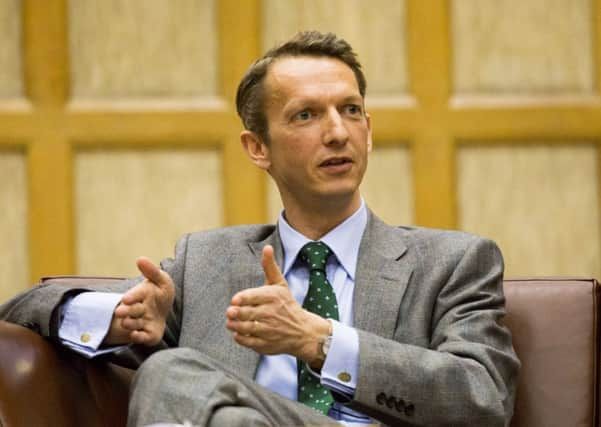Banker savages ‘unjust’ bailout that cost taxpayer over a trillion


Andy Haldane, the bank’s executive director for financial stability, said the bailout – £1.162 trillion at its peak – was necessary if not essential to prevent a social and economic fallout on the scale of the Great Depression.
But he added: “Was that fair? Absolutely it was not.
“In the grand scheme of things, what we saw was the upside being harvested by the financial sector and the downside being taken by wider society. That is unjust and wrong and intolerable and the reform agenda is removing us from that hook.
Advertisement
Hide AdAdvertisement
Hide Ad“We cannot afford, metaphorically and literally, to have this happen again. Society won’t tolerate a repeat performance of what we have seen.”
Mr Haldane, who was speaking at Sheffield University, said regulators were working to prevent future financial crises by making it easier for new banks to enter the market and to allow larger institutions to fail without jeopardising the entire banking system.
He said: “You cannot have capitalism without failure. That’s like politics without elections. It just can’t work. Capitalism without failure is communism.”
Mr Haldane, who is from Guiseley, Leeds, is seen as a rising star within the central bank and was described in a recent profile as “the coming man of British banking”. He made headlines in 2012 when he said the Occupy protest movement was right to criticise the global financial system.
Advertisement
Hide AdAdvertisement
Hide AdMr Haldane admitted that regulators face a challenge in keeping up with bankers, comparing the relationship to “bloodhounds in pursuit of greyhounds”, which turn out to be “quicker than you, certainly better paid than you and sometimes smarter than you”.
He said questions about the culture within banking are “right on the money”, adding that “unless you are able to durably alter bankers’ preferences for taking risks, we are chasing our tails”. He described bankers’ compensation as “extraordinary, relative to pretty much any other industry”.
Mr Haldane said he hopes that moves to defer or claw back bonuses will be enough to reshape culture, incentives and risk-taking within banking, but raised the prospect of further action: “We may have to do more.”
Barclays paid £2.4bn in incentive awards last year, while state-backed Lloyds paid out £395m.
Advertisement
Hide AdAdvertisement
Hide AdMr Haldane said that following the global financial crisis regulators have learned their lesson about managing banks in a closely interlinked system. He raised doubts about the ability of regulators to manage countries – also interlinked – in the event that they fall into financial difficulties.
Mr Haldane said: “Currently we don’t have international rules of the road for how countries ought to behave and what policies they might put in place to prevent adverse spillover consequences of actions they might take. That is a gap bordering on a chasm in the global financial system.”
He was speaking at an event organised by the Sheffield Political Economy Institute.